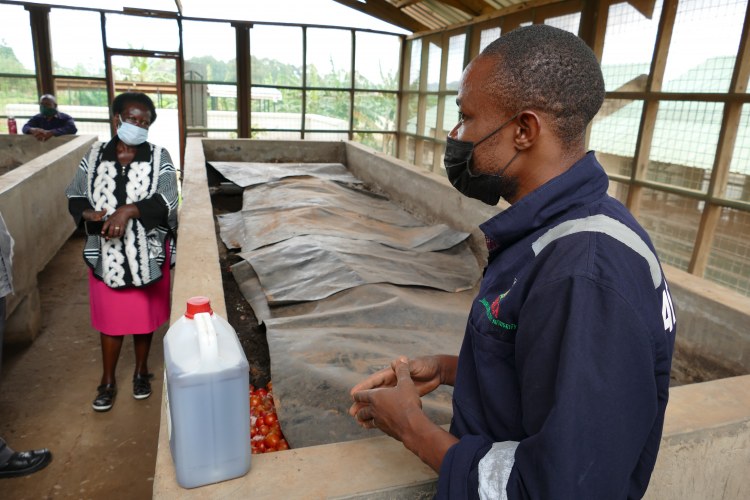It's a hot September Friday in Kampala, and the sun is beaming at the Kampala Capital City Authority (KCCA) Resource Center in Kyanja. Rikolto colleagues Peter Businda, Ward Goossenaerts and Ine Tollenaers are visiting the centre to see different urban farming technologies work in practice. The future of urban farming shines bright here: Not so much because of the radiant sun, but because of the remarkable display of technologies.
The Kyanja Agricultural Resource Center in Kawempe division is set up by KCCA to showcase and demonstrate innovations in urban farming. It is spread out over a large area of around 30 acres. The objective of the resource center is to engage communities to participate in urban farming as a source of income and food security.















